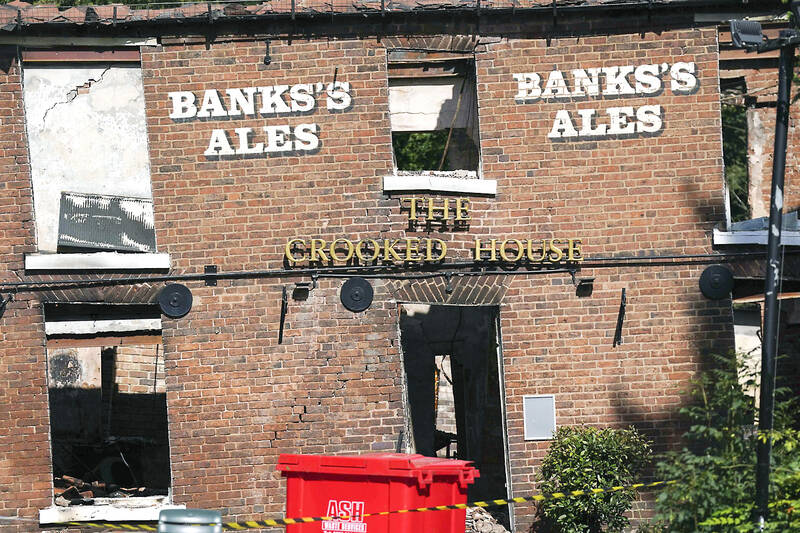The recent fire and subsequent demolition of The Crooked House public house at Himley in the
West Midlands has resulted in much anger, but unless criminal intent can be proven may
ultimately considered a fait accompli.
Details of the building’s demise have been followed by the national media and certain
information has come to light.
Although built in the 18th century the building does not appear to have been listed. It had
acquired its unique appearance due to subsidence from underground mining during the 19th
century but was saved from demolition by the addition and subsequent strengthening of
buttresses.
In recent weeks it was sold to an adjoining landowner, who we are told wanted it for alternative
purposes. Within days of purchase however the building went up in flames. This is being
investigated by the police as possible arson.
Almost immediately the building was demolished, without planning permission and according to
the Council contrary to its advice to only demolish the upper floor which was considered
dangerous. The Council, faced with local and national uproar, is investigating what action it can
take.
At present suspicion falls on the new owner, although proving this may prove difficult although
the timing of the fire and the speed at which the building was demolished would appear to
indicate a premeditated act.
Given the pub’s location in the countryside it is unlikely that the Council would grant planning
permission for any significant redevelopment so the motive for the loss of the public house is
questioned.
Proving who was responsible may be difficult to prove in court and there is little likelihood or
requiring the public house to be rebuilt. The case once again flags up weaknesses in the
planning system where unscrupulous developers cover their tracks to gain something which
may not otherwise have been granted. Removal of protected trees or travellers setting up home
on greenfield sites are all too common and may take years to resolve if ever.
Given the local outrage one may question why the local authority had not sought to get the
building listed or at least designated a Conservation Area, both of which would have afforded a
degree of protection.
Undertaking work without planning permission is not a criminal offence which opens it up to
potential abuse and this case may prompt calls for greater control. I have been told that in France where suspicions arise due to buildings being demolished or burnt down the site cannot
be redeveloped for five years, thus removing any financial incentive.
Whether true or not it is the sort of legislation which is needed if we are to protect our heritage
from similar events in the future.
By Keith Oliver


